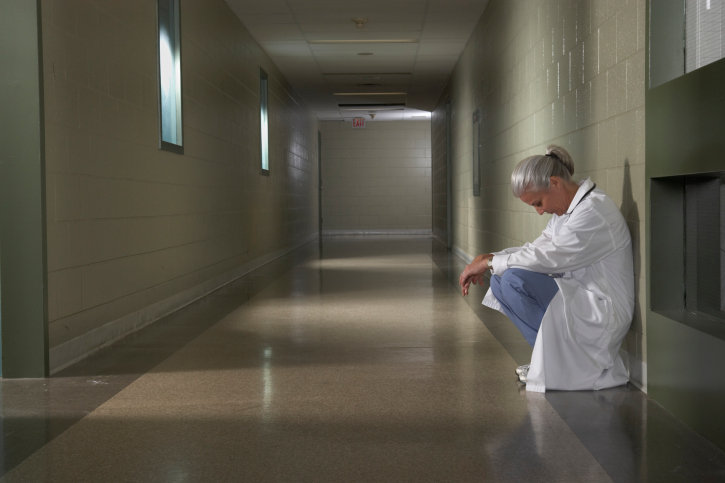 Traumatic childbirth experiences—which may severely injure or kill the mother or baby—can cause midwives and obstetricians to experience signs of secondary trauma, according to a study published in Acta Obstetricia et Gynecologica Scandinavica. Clinicians who attended traumatic childbirths also reported the experience made them more effective care providers.
Traumatic childbirth experiences—which may severely injure or kill the mother or baby—can cause midwives and obstetricians to experience signs of secondary trauma, according to a study published in Acta Obstetricia et Gynecologica Scandinavica. Clinicians who attended traumatic childbirths also reported the experience made them more effective care providers.
According to Prevention and Treatment of Traumatic Childbirth, traumatic birth experiences are common, with 25-34% of women labeling their birth experiences traumatic. Estimates of the impact these experiences have on women vary, but a 2013 Iranian study found 17.2% of 600 studied women had symptoms of posttraumatic stress (PTSD) after childbirth.
How Birth Trauma Affects Clinicians
Researchers from the University of Southern Denmark surveyed Danish midwives and obstetricians, receiving responses from a total of 1,237 professionals. Eighty-five percent reported attending at least one traumatic childbirth, during which either the mother or baby died or suffered serious injuries.
Clinicians reported fearing blame from mothers, other clinicians, and legal authorities. More prevalent was their self-blame—even when the traumatic outcome was unavoidable. Eighty-seven percent felt upset about the experience for a long time after it occurred, and 49% experienced guilt. Thirty-six percent agreed with the statement, “I will always feel some sort of guilt when thinking about the event.”Some clinicians also derived meaning and inspiration from traumatic birthing experiences. Fifty percent said their experiences caused them to contemplate the meaning of life, and 65% believed these experiences made them better clinicians.
Secondary Trauma in Clinicians
The effects held no matter how long it had been since the event, suggesting traumatic births can have significant and long-lasting effects on clinicians. However, only 59% of the clinicians surveyed responded to the survey. It is possible only those who had the strongest feelings or memories of traumatic births responded, potentially skewing the results.
The study’s authors say their research points to the need for more support for clinicians who have attended or been involved with traumatic childbirths.
References:
- Brazier, Y. (2016, April 11). Clinicians experience trauma when childbirth goes wrong. Retrieved from http://www.medicalnewstoday.com/articles/308883.php
- Research uncovers the effects of traumatic childbirth on midwives and obstetricians. (2016, April 11). Retrieved from https://www.sciencedaily.com/releases/2016/04/160411082633.htm
- Shaban, Z., Dolatian, M., Shams, J., Alavi-Majd, H., Mahmoodi, Z., & Sajjadi, H. (2013). Post-traumatic stress disorder (PTSD) following childbirth: Prevalence and contributing factors. Iranian Red Crescent Medical Journal, 15(3), 177-82. doi:10.5812/ircmj.2312
- Simkin, P. (n.d.). Birth trauma: Definition and statistics. Retrieved from http://pattch.org/resource-guide/traumatic-births-and-ptsd-definition-and-statistics/

The preceding article was solely written by the author named above. Any views and opinions expressed are not necessarily shared by GoodTherapy.org. Questions or concerns about the preceding article can be directed to the author or posted as a comment below.

 Sexual Intimacy After Childbirth: When It Isn't Like Before
Sexual Intimacy After Childbirth: When It Isn't Like Before Men, Too, Deserve to Grieve the Loss of Their Babies
Men, Too, Deserve to Grieve the Loss of Their Babies Perinatal Depression: What It Is and What It Probably Isn't
Perinatal Depression: What It Is and What It Probably Isn't

